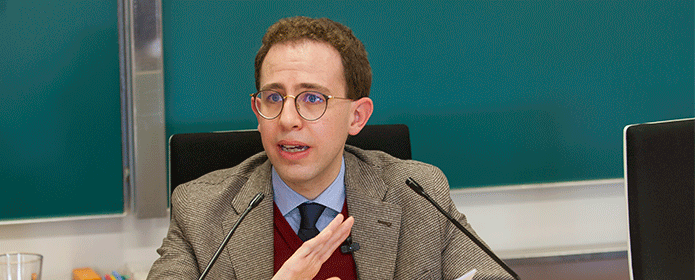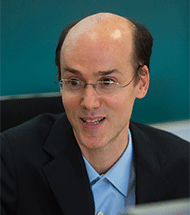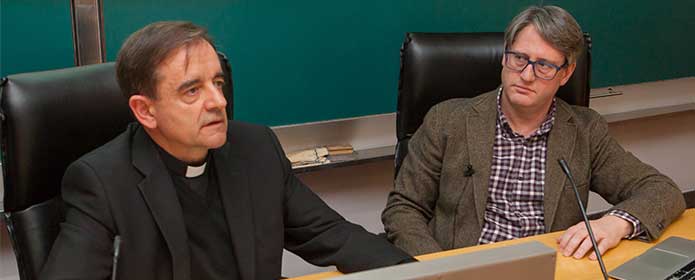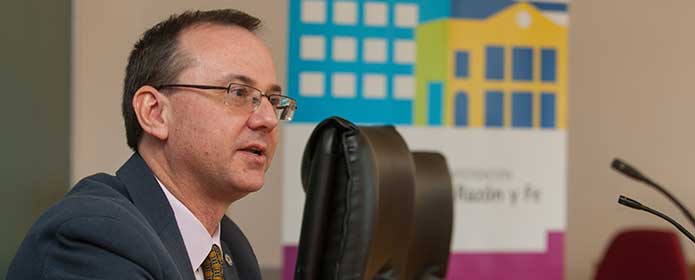"I don't think machines can think creatively like human beings."
The professor and former student of the University, Carlos Blanco, gave the February seminar of the group 'Science, Reason and Faith' focused on "The logic of creativity".

"I do not believe that machines can think creatively like human beings, or even in a more creative and profound way". This was emphasized by Carlos Blanco, professor at Comillas Pontifical University, during his participation in the February seminar of the group 'Ciencia Razón y Fe' (CRYF) of the University of Navarra, focused on "The logic of creativity".
Professor Blanco started with the question "how can we understand creativity? And to do so, he unpacked the most relevant philosophical issues behind this term, provisionally defined as the ability to generate ideas.
In his exhibition he justified three things thesis : The first, that the human mind, thanks to science and Philosophy, has basic conceptual tools to understand the logic of the creative process. "At least in its general terms," he clarified. The second argued that there are no compelling reasons to establish fundamental differences between scientific and artistic creativity. And the third was an exhortation to rethink the future of creativity based on the challenges posed today by the development of artificial intelligence and the future of the Education of the human mind.
On this third point, Blanco stressed the importance of fostering creativity and developing intuition, which he referred to as "the treasure of the mind. And he pointed out that, although pessimism continually hovers over human beings, he considers himself an idealist in thinking that we can bring about a new renaissance of the human mind: "We must not fear scientific progress, nor the horizons opened up by artificial intelligence, but use the technological development wisely in the light of prudence. Rather than replacing us, what technology can do is help us to increase our capabilities and to focus on what we cannot automate.
To this end, he pointed out that it is fundamental to conceive Education not as the mere transmission of content, but as the creation of spaces of intelligence. "Educate to understand, to understand the world and leave our own mark on it," he said. And he added: "Technology urges us to discover which skills may be most needed in the future with the goal to focus our efforts on cultivating and enhancing them."
graduate in 2007 at Chemistry, Theology and Philosophy is the author of more than 20 books.The speaker, Carlos Blanco (Madrid, 1986), is a professor of Philosophy at the Universidad Pontificia Comillas. In 2007 he graduated simultaneously in Philosophy, Chemistry and theology at the University of Navarra, where he worked at project Mind-Brain between 2011 and 2014. D. in Philosophy and Ph.D. in theology, between 2009 and 2011 he was Visiting Fellow at Harvard University, on a scholarship from the Caja Madrid Foundation. He has published twenty books, including The Integration of knowledge (2018), Logic, Science and Creativity (2014) and History of Neuroscience (2014), as well as numerous research articles in national and international journals dealing with Philosophy, history and cognitive science.
In 2015 he was elected to the World Academy of Art and Science and in 2016 to the European Academy of Sciences and Arts in Salzburg. In 2012 he co-founded the Altius Society in Oxford, which has brought together some of the brightest minds in science and Philosophy to address global challenges such as transhumanism, artificial intelligence and the future of Education.



